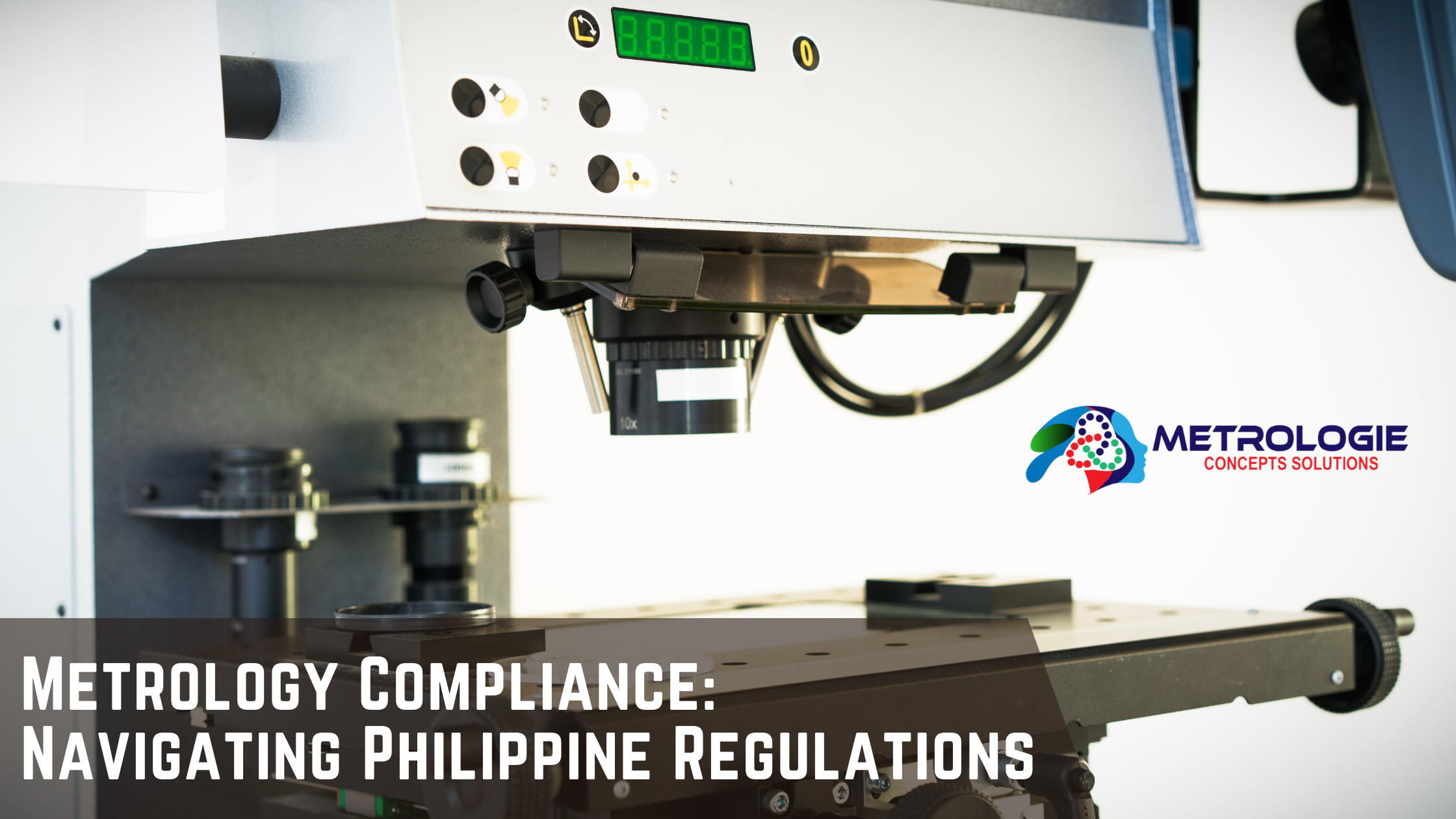In this comprehensive guide, we’ll explore Metrology Compliance in the Philippines, providing businesses with valuable insights on regulations, standards, and how to avoid non-compliance.
Introduction
Navigating the intricate landscape of metrology compliance in the Philippines is essential for businesses. Understanding and adhering to the regulations and standards set by the government can help you avoid serious consequences. In this article, we will provide you with expert guidance to ensure compliance with Philippine metrology regulations and standards. We’ll also delve into the repercussions of non-compliance and how to steer clear of them.
Understanding Metrology Compliance
Metrology Compliance is the adherence to standardized measurements and units, ensuring that products and services meet specific criteria. In the Philippines, the Department of Trade and Industry (DTI) is responsible for regulating metrology. Let’s explore how to maintain compliance effectively.
Importance of Compliance
Ensuring compliance with metrology regulations is crucial for businesses for several reasons:
- Legal Obligation: Businesses are legally required to comply with metrology regulations in the Philippines.
- Consumer Trust: Compliance enhances consumer trust, showcasing your commitment to quality.
- Global Trade: Compliance is essential for businesses involved in international trade.
- Quality Assurance: It ensures the quality and safety of products and services.
Key Philippine Metrology Regulations
To maintain compliance, businesses should be aware of the following key regulations:
- Republic Act No. 4109: This act provides guidelines on weights and measures, ensuring fairness in trade.
- DTI Administrative Order No. 3, Series of 2001: This order details the rules on the calibration and testing of weighing and measuring instruments.
- DTI Administrative Order No. 10, Series of 2001: It covers the labeling of consumer products, ensuring accurate information for consumers.
Steps to Ensure Compliance
To ensure compliance with Philippine metrology regulations, businesses should take the following steps:
- Calibration and Testing: Regularly calibrate and test weighing and measuring instruments.
- Proper Labeling: Ensure that product labels meet the standards set by the DTI.
- Documentation: Maintain comprehensive records of calibration and testing activities.
- Training: Train employees on metrology regulations and standards.
Consequences of Non-Compliance
Non-compliance can lead to serious consequences for businesses, including:
- Fines and Penalties: The DTI may impose fines for violations of metrology regulations.
- Product Recalls: Non-compliance can lead to product recalls, causing financial losses.
- Reputation Damage: Non-compliance can tarnish a business’s reputation, leading to decreased consumer trust.
- Legal Action: Legal action may be taken against businesses that consistently violate regulations.
How to Avoid Non-Compliance
Preventing non-compliance is vital. Here are some tips to help your business stay on the right side of the law:
- Stay Informed: Keep up to date with changing regulations and standards.
- Regular Audits: Conduct regular internal audits to ensure compliance.
- Consult Experts: Seek advice from metrology experts or hire professionals for calibration and testing.
- Employee Training: Continuously educate your employees on metrology compliance.
Frequently Asked Questions
Q: What is the role of the DTI in metrology compliance?
A: The DTI oversees and enforces metrology regulations and standards in the Philippines.
Q: How often should weighing and measuring instruments be calibrated?
A: Calibration should be performed regularly, with the frequency depending on the type of instrument and its usage.
Q: Can non-compliance result in legal action against a business?
A: Yes, businesses that consistently violate metrology regulations can face legal action.
Q: What is the benefit of compliance for businesses?
A: Compliance enhances consumer trust, ensures fairness in trade, and is vital for global trade.
Q: Are there any resources available for businesses to learn more about metrology compliance?
A: Yes, the DTI provides resources and guidelines for businesses to understand and achieve compliance.
Q: How can businesses prepare for changes in metrology regulations?
A: Staying informed and regularly checking for updates from the DTI is essential for preparation.
Conclusion
In conclusion, Metrology Compliance is not just a legal requirement but a commitment to quality and consumer trust. Adhering to Philippine metrology regulations and standards is essential for businesses in the Philippines, as non-compliance can result in dire consequences. By staying informed, following best practices, and seeking expert guidance when necessary, businesses can ensure compliance and build a strong reputation in the market.




